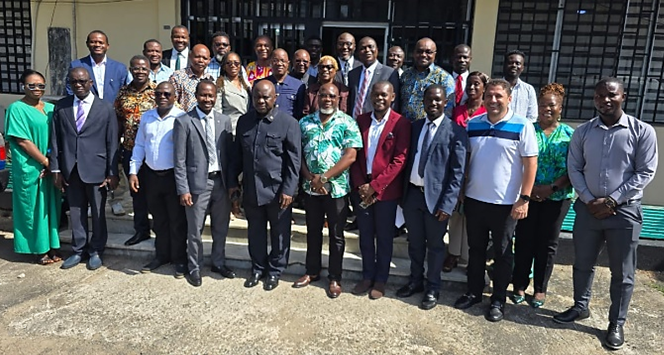The Liberian tax landscape is poised for a significant transformation with the proposed establishment of the Liberian Institute of Tax Practitioners (LITP). A two-day validation workshop, held at the Liberia Chamber of Commerce on April 16-17, 2025, brought together tax professionals and legal experts to scrutinize the draft Act that will pave the way for the LITP’s creation. This initiative is a direct response to the increasing complexities of the global tax environment, fueled by rapid technological advancements and the need for more sophisticated tax administration. The LITP aims to address critical gaps in Liberia’s tax system, bolstering the government’s efforts to provide efficient and taxpayer-focused services. The Institute’s mandate encompasses training, educating, and regulating tax practitioners, ultimately enhancing the quality and standardization of tax services across the country. This move is expected to significantly improve voluntary tax compliance, boost revenue collection, and strengthen Liberia’s overall fiscal policy framework.
The validation workshop marked a pivotal moment in the journey towards formalizing the LITP. Cllr. R. McDonald Garnett, Sr., Acting President of the LITP, underscored the importance of the event, highlighting it as a “key milestone” in institutionalizing the body and aligning its operations with global best practices. He emphasized the need for rigorous review and substantive input from participants to ensure the proposed Act is robust, relevant, and equipped to address the challenges and opportunities of the evolving tax landscape. The collaborative nature of the workshop underscores the commitment to creating a sustainable and effective institution that serves the interests of both the government and taxpayers.
High-ranking government officials expressed their strong support for the LITP initiative. Deputy Finance Minister for Fiscal Affairs, Anthony Myers, acknowledged the long and deliberate process that led to the validation phase, emphasizing the crucial role the LITP will play in supporting ongoing tax and fiscal reforms. He specifically pointed to the need to modernize the Liberia Revenue Code, which, at over 25 years old, contains outdated provisions that no longer reflect the current economic realities. The LITP is seen as a vital tool in harmonizing fiscal laws and strengthening public financial management, contributing to a more efficient and transparent tax system. Former LRA Commissioner General Elfrieda Stewart Tamba echoed this sentiment, commending the leadership of the LITP for their persistence and dedication. She urged continued commitment to building a robust professional body that can effectively partner within the national tax ecosystem.
The LITP has garnered broad support, including from within the Liberia Revenue Authority (LRA). Mr. Arthur W. B. Fumba, Acting Vice President of LITP, confirmed the endorsement of LRA Commissioner General James Dorbor Jallah, who recognizes the Institute’s potential to significantly improve tax compliance and domestic revenue mobilization. This collaborative approach between the LITP and the LRA signals a unified front in tackling tax challenges and driving positive change within the sector. Further strengthening its regional standing, the LITP holds provisional membership with the West African Union of Tax Institutes (WAUTI), with full membership anticipated upon its legal establishment. This affiliation will provide access to regional expertise, best practices, and networking opportunities, further enriching the Institute’s capacity and reach.
The legal framework for the LITP is being meticulously crafted under the guidance of Cllr. Jallah Barbu, a constitutional lawyer and Chair of the Law Reform Commission. His expertise is instrumental in ensuring the Act’s alignment with the Liberian Constitution and its effectiveness in achieving its objectives. Following the validation workshop, the finalized draft legislation will be submitted to the National Legislature for enactment, as stipulated in Chapter 10, Article 89 of the Liberian Constitution, which empowers the creation of public agencies essential for effective governance. This legal process underscores the commitment to transparency and adherence to established constitutional procedures.
The establishment of the LITP is poised to be a transformative development for Liberia’s tax administration. By creating a structured platform for professionalism, ethical standards, and technical expertise, the Institute will drive sustainable fiscal growth and contribute significantly to the nation’s economic transformation. The LITP’s focus on training and regulation will elevate the standards of tax practice, fostering greater trust and transparency within the tax system. Improved tax compliance and increased revenue mobilization will provide the government with the resources necessary to invest in critical public services and infrastructure, ultimately benefiting all Liberians. The LITP represents a strategic investment in the future of Liberia’s fiscal health and economic prosperity.


